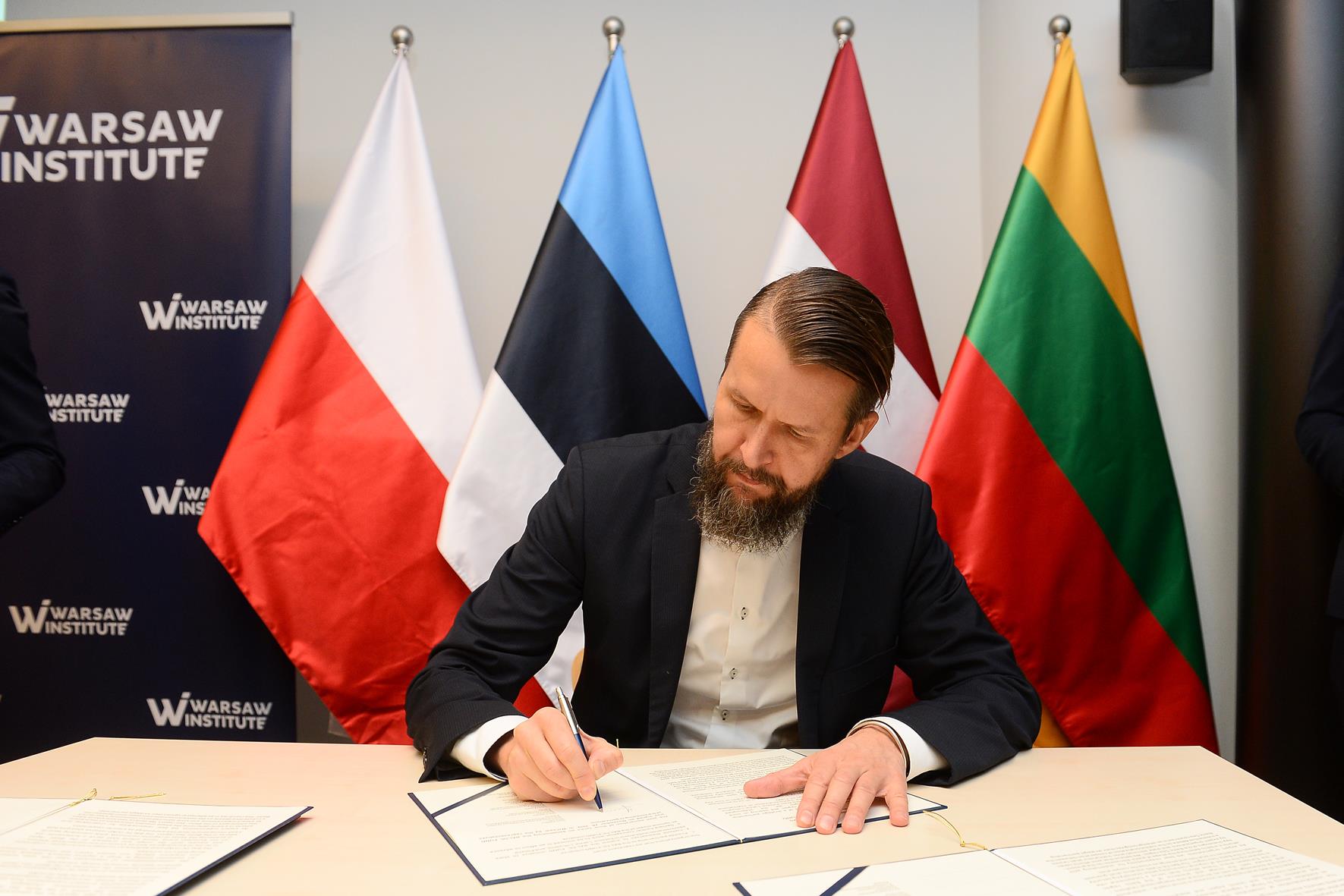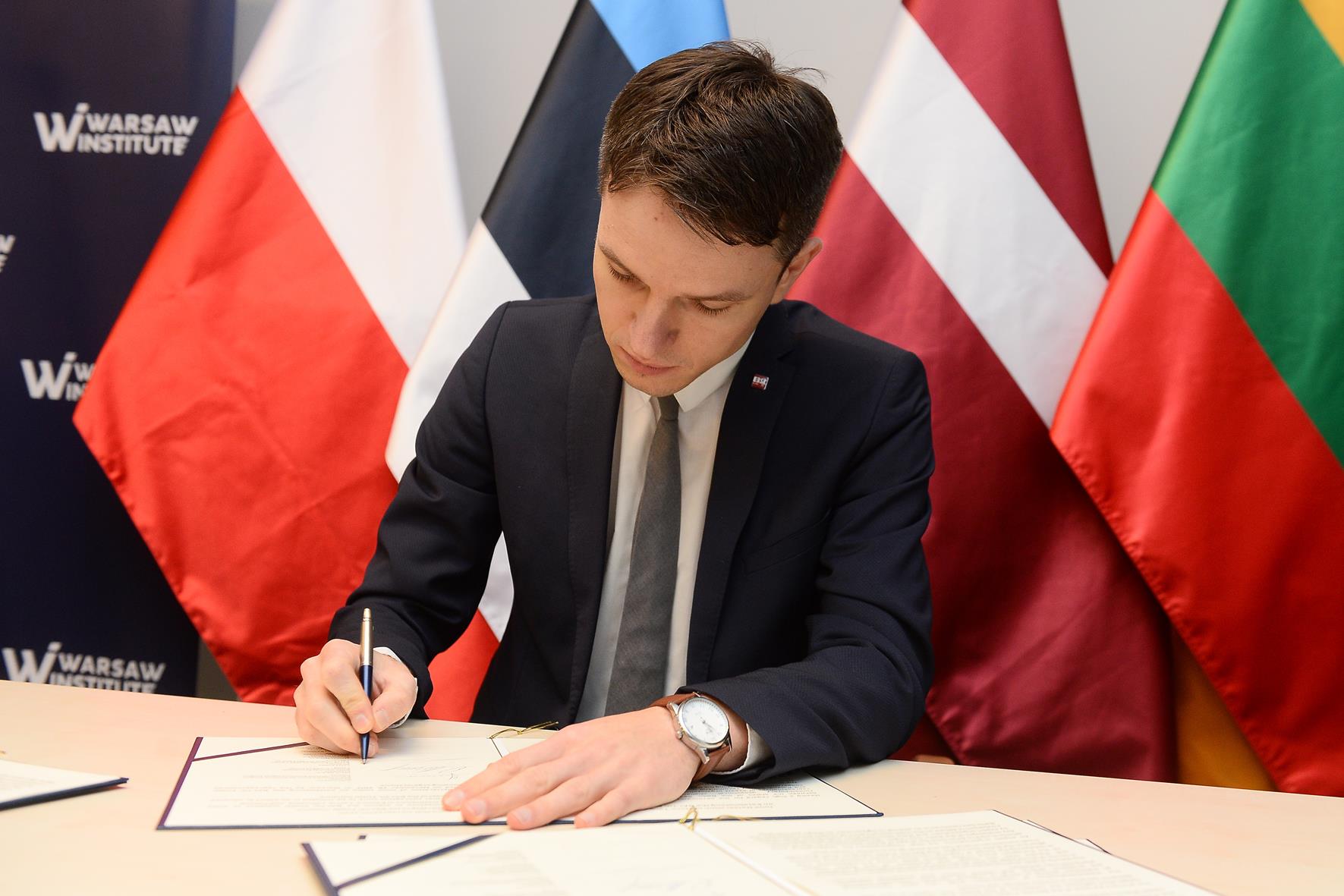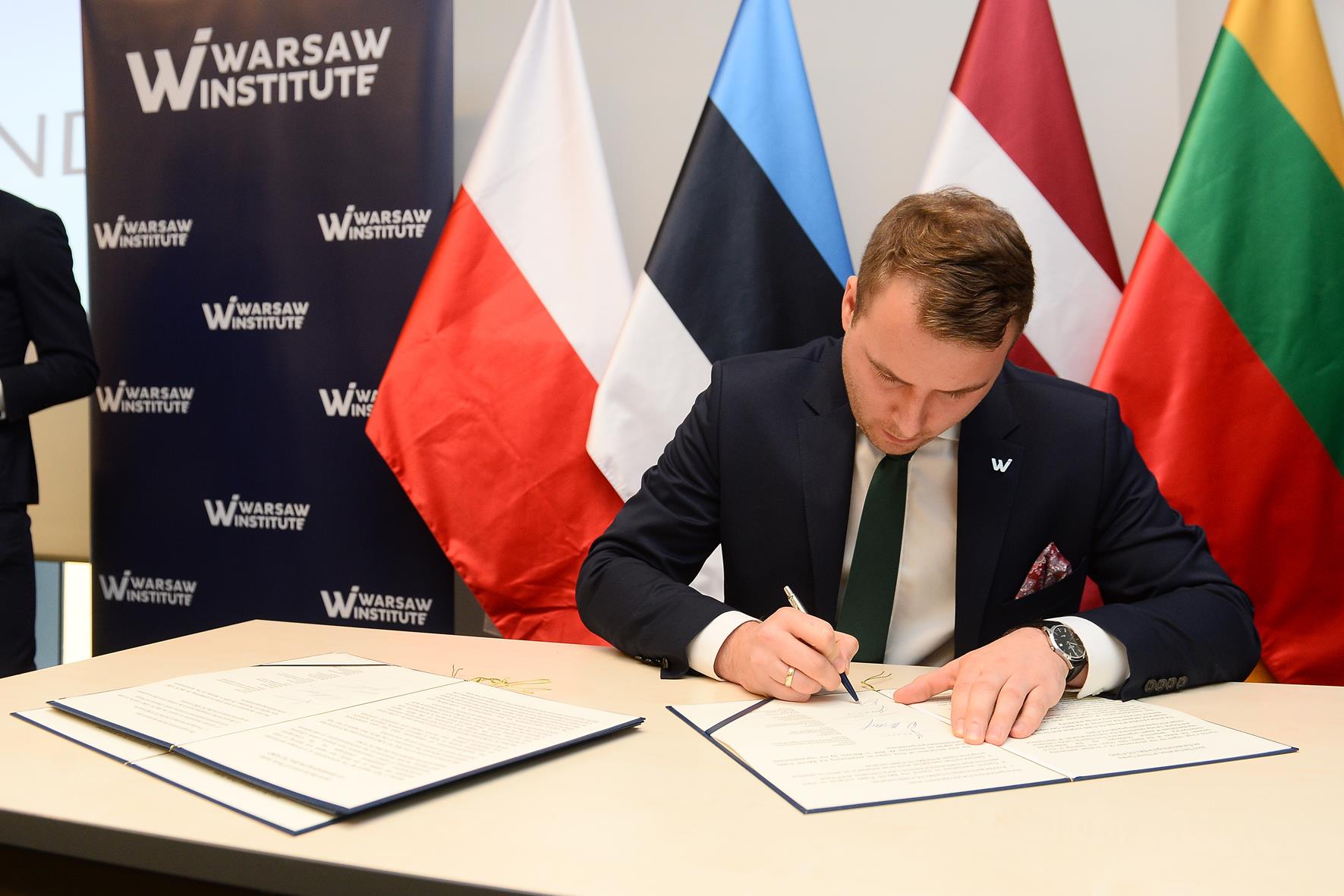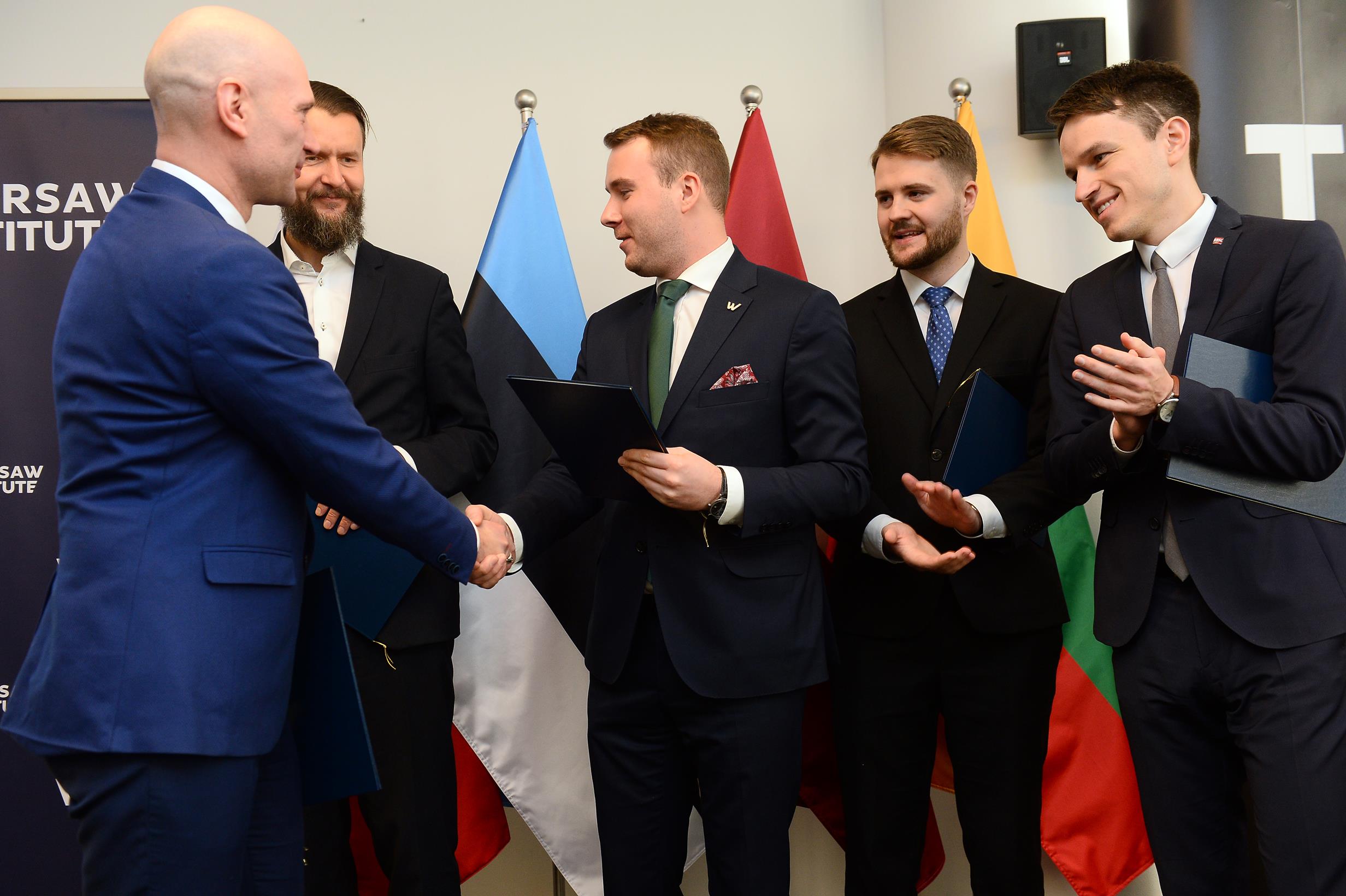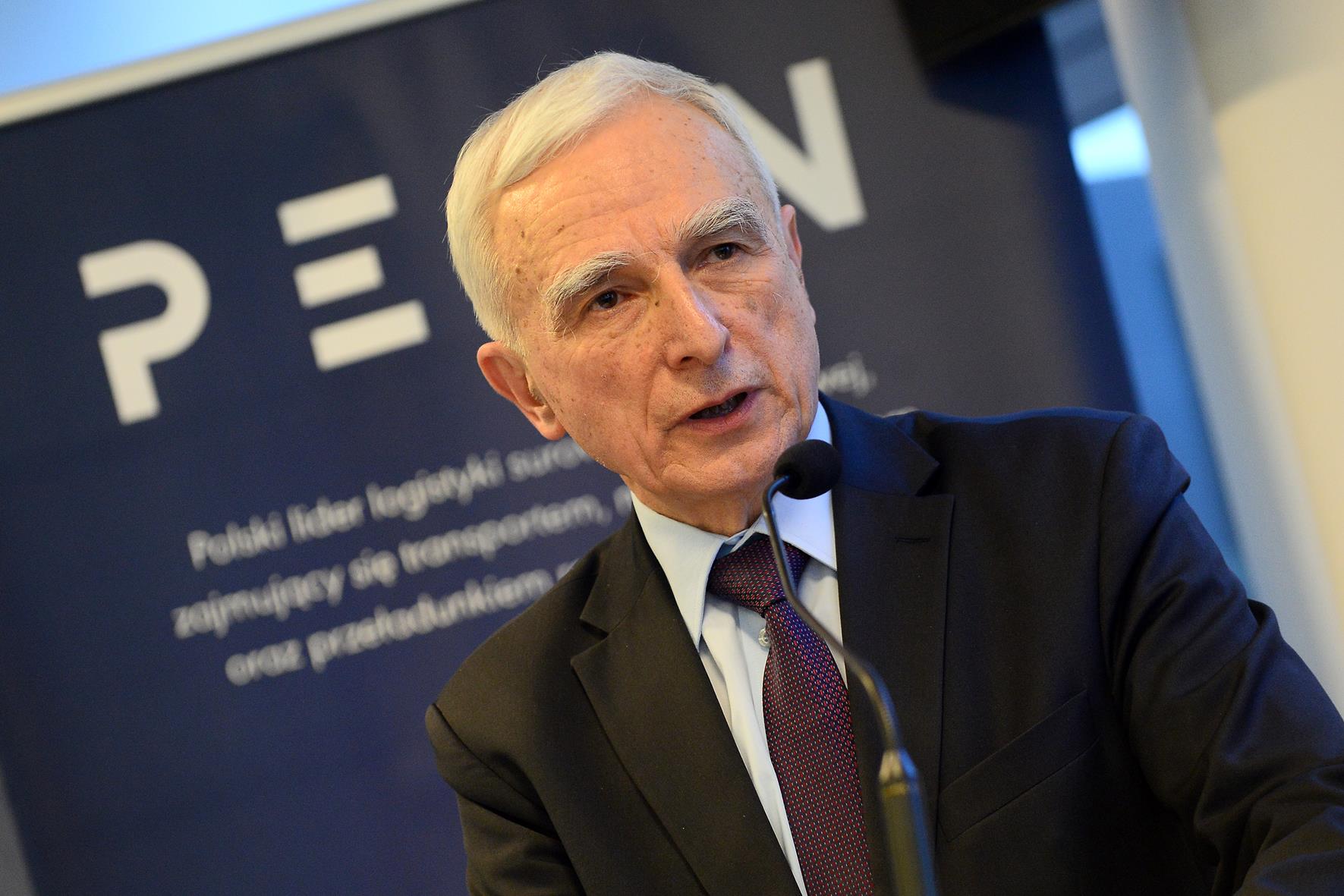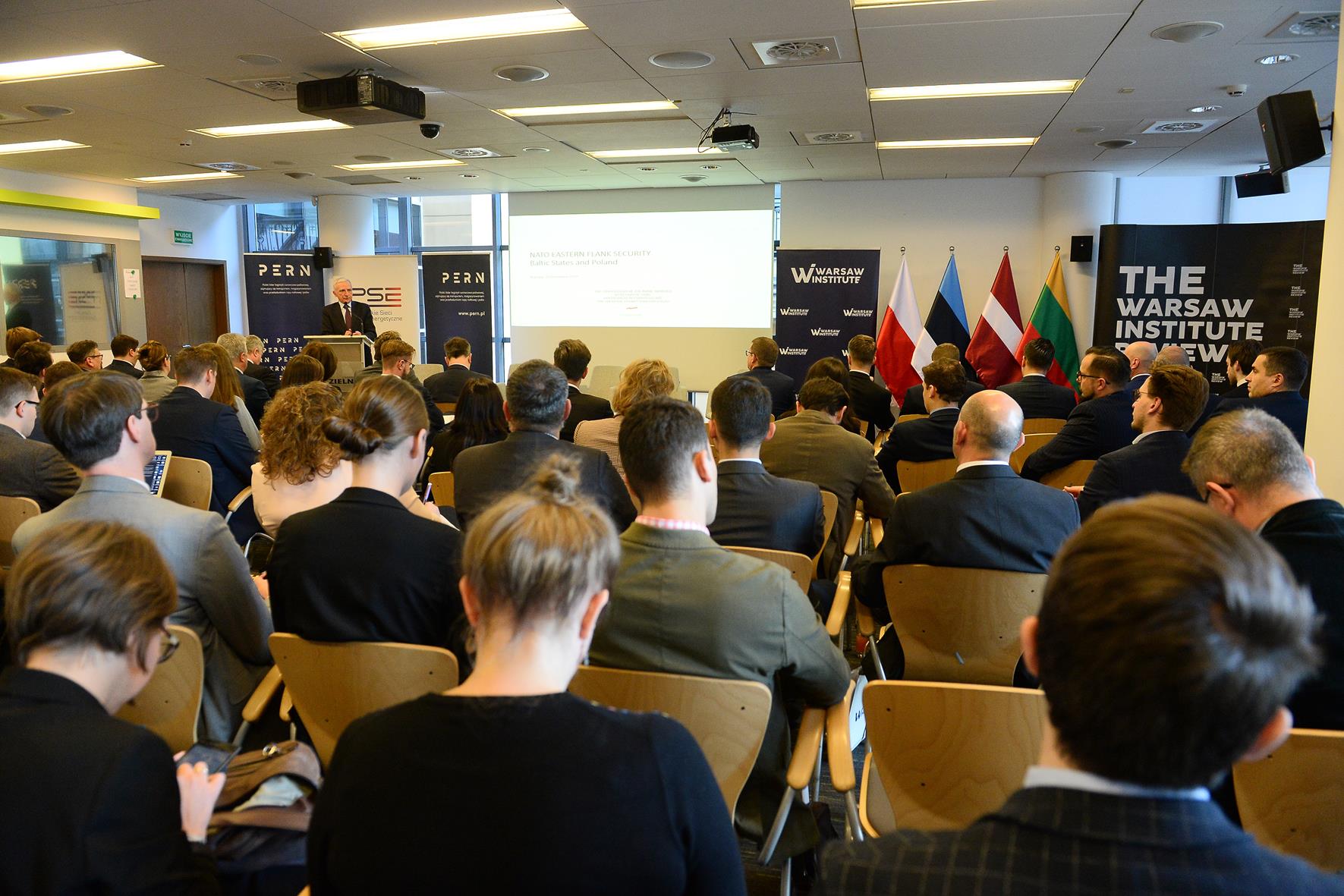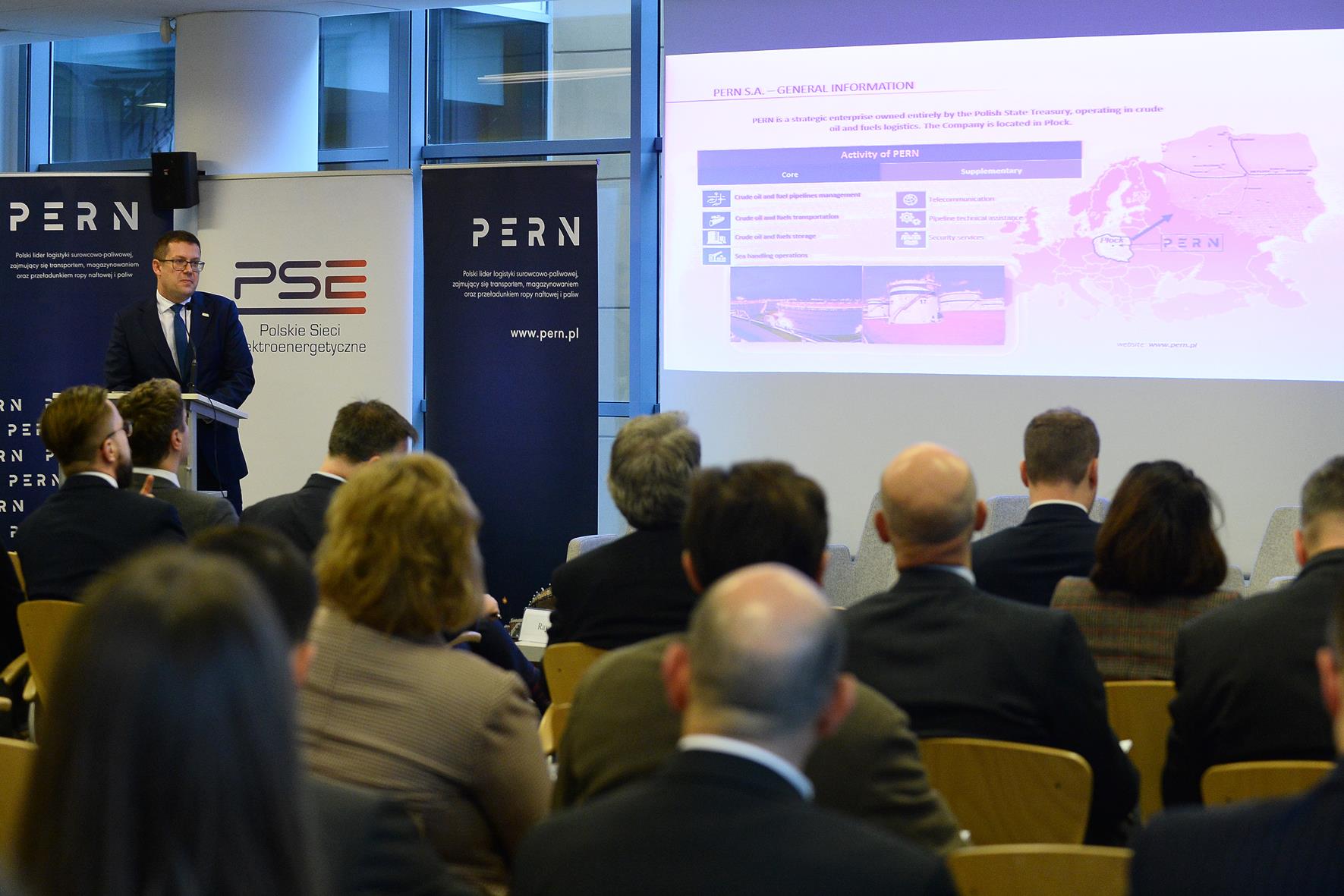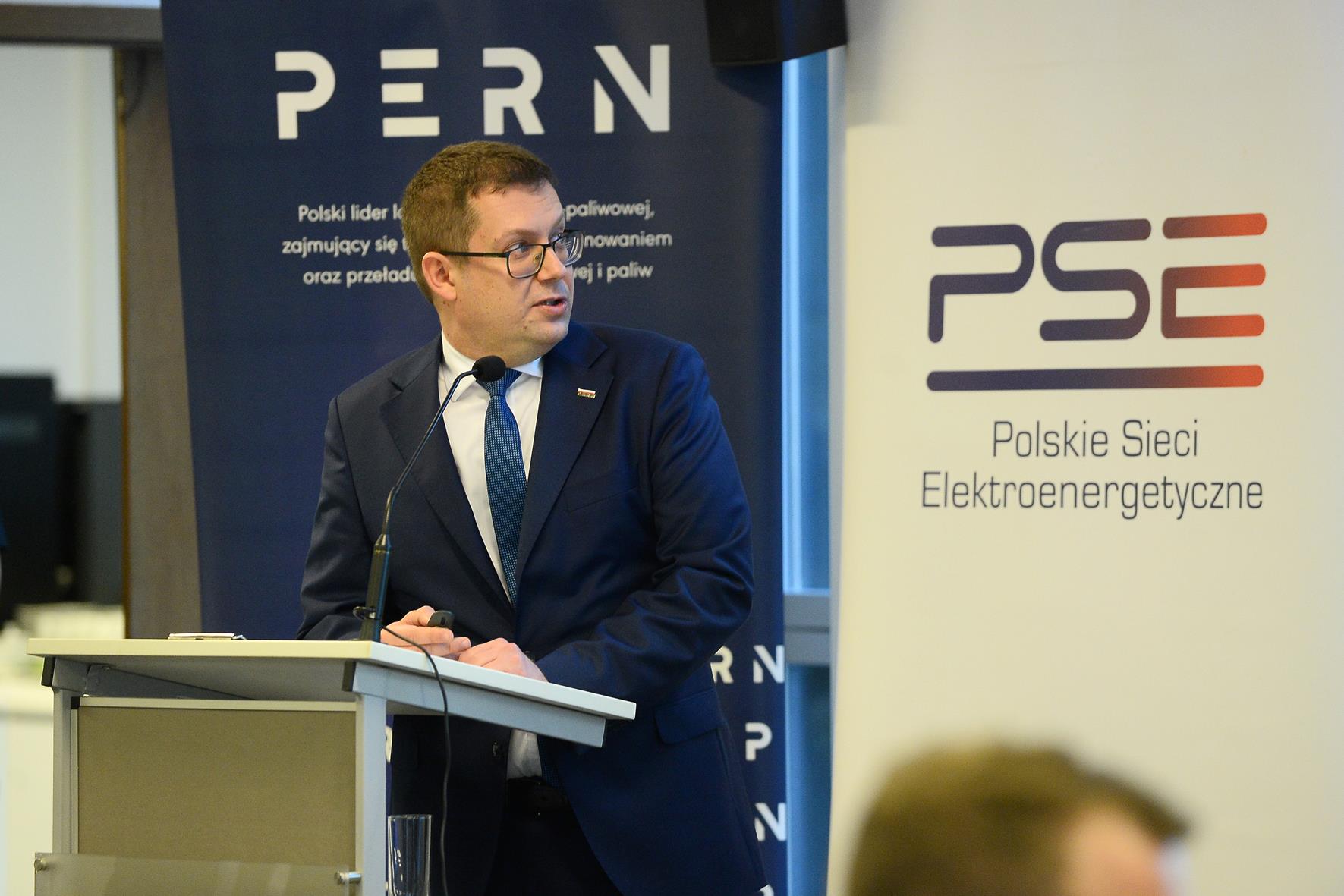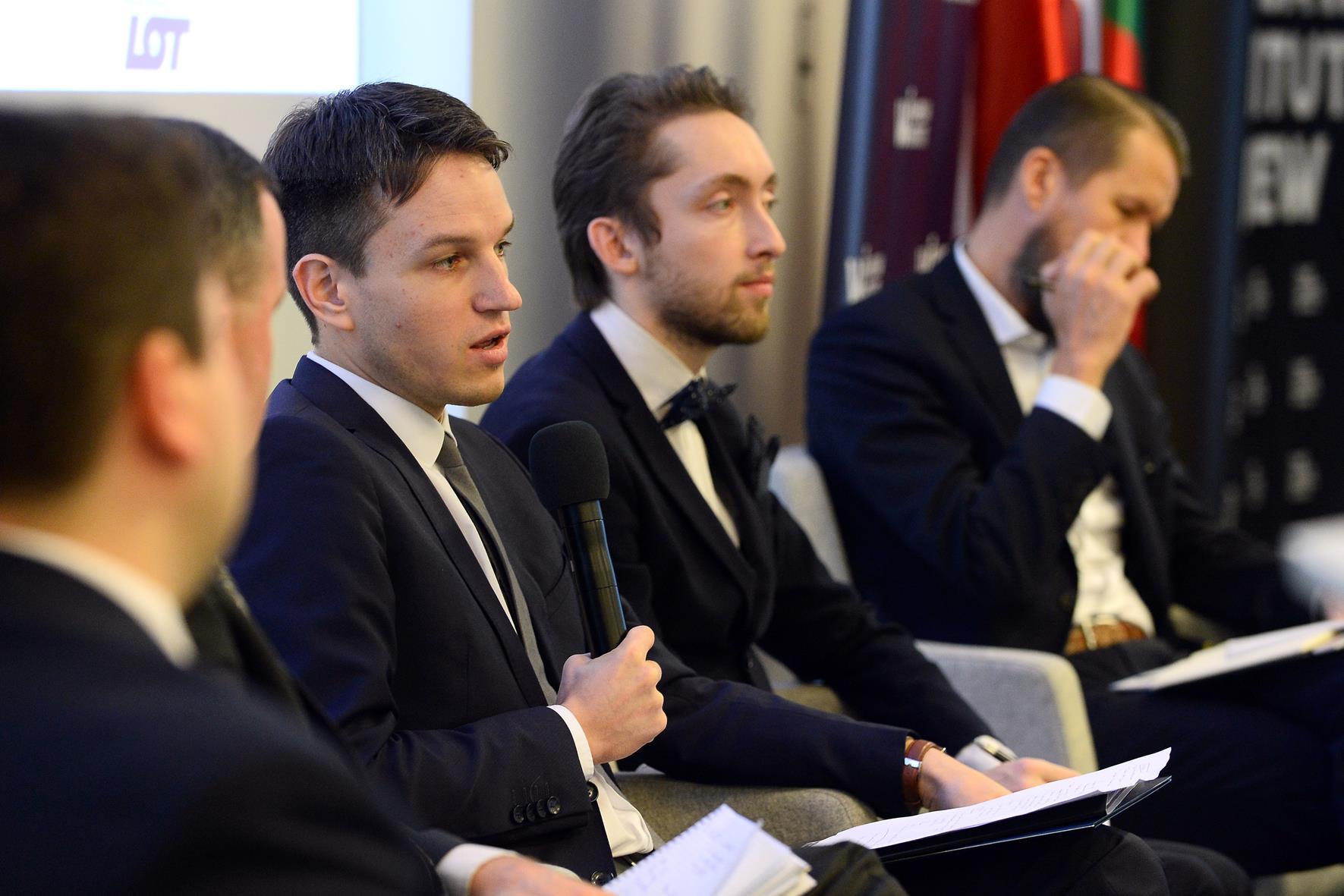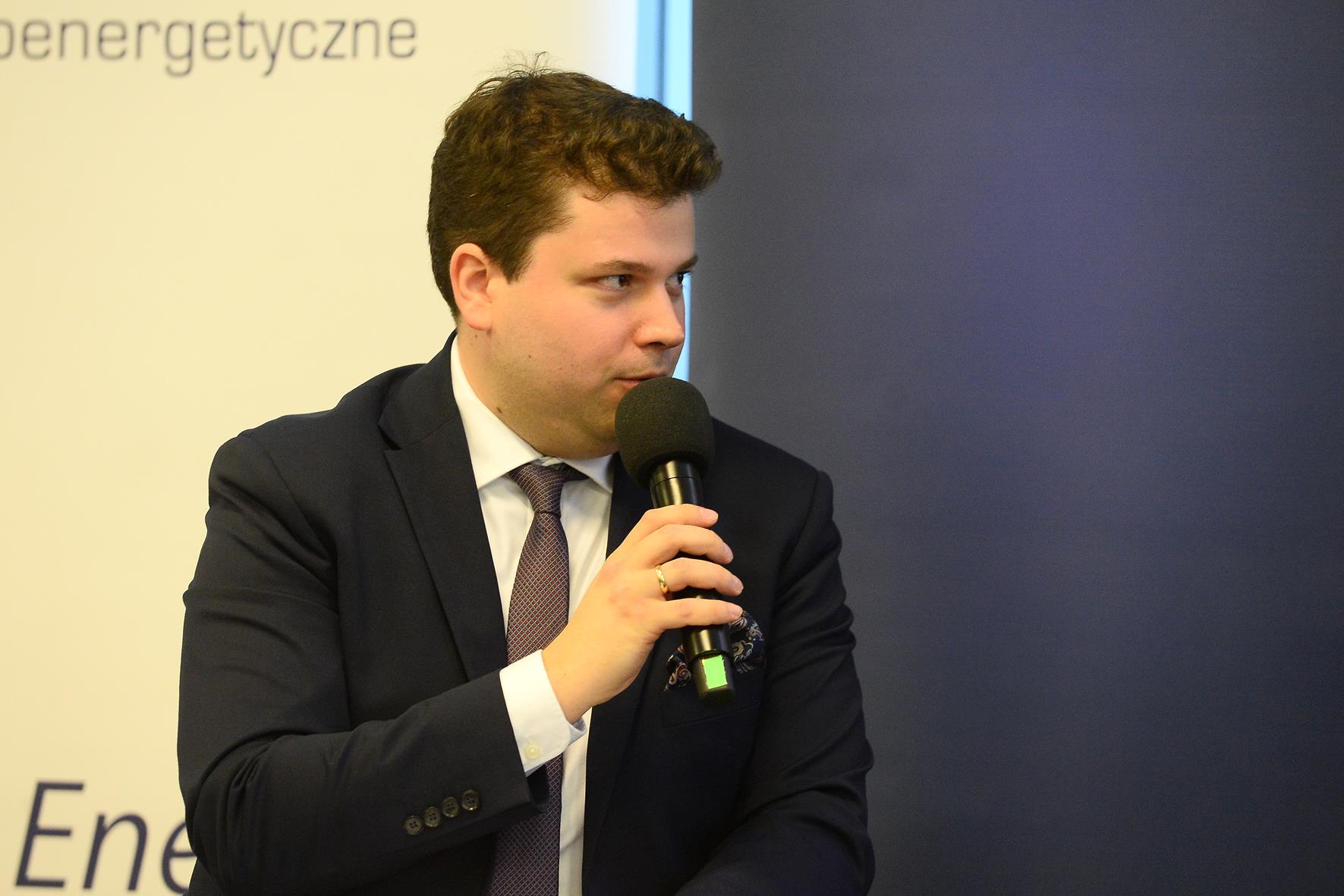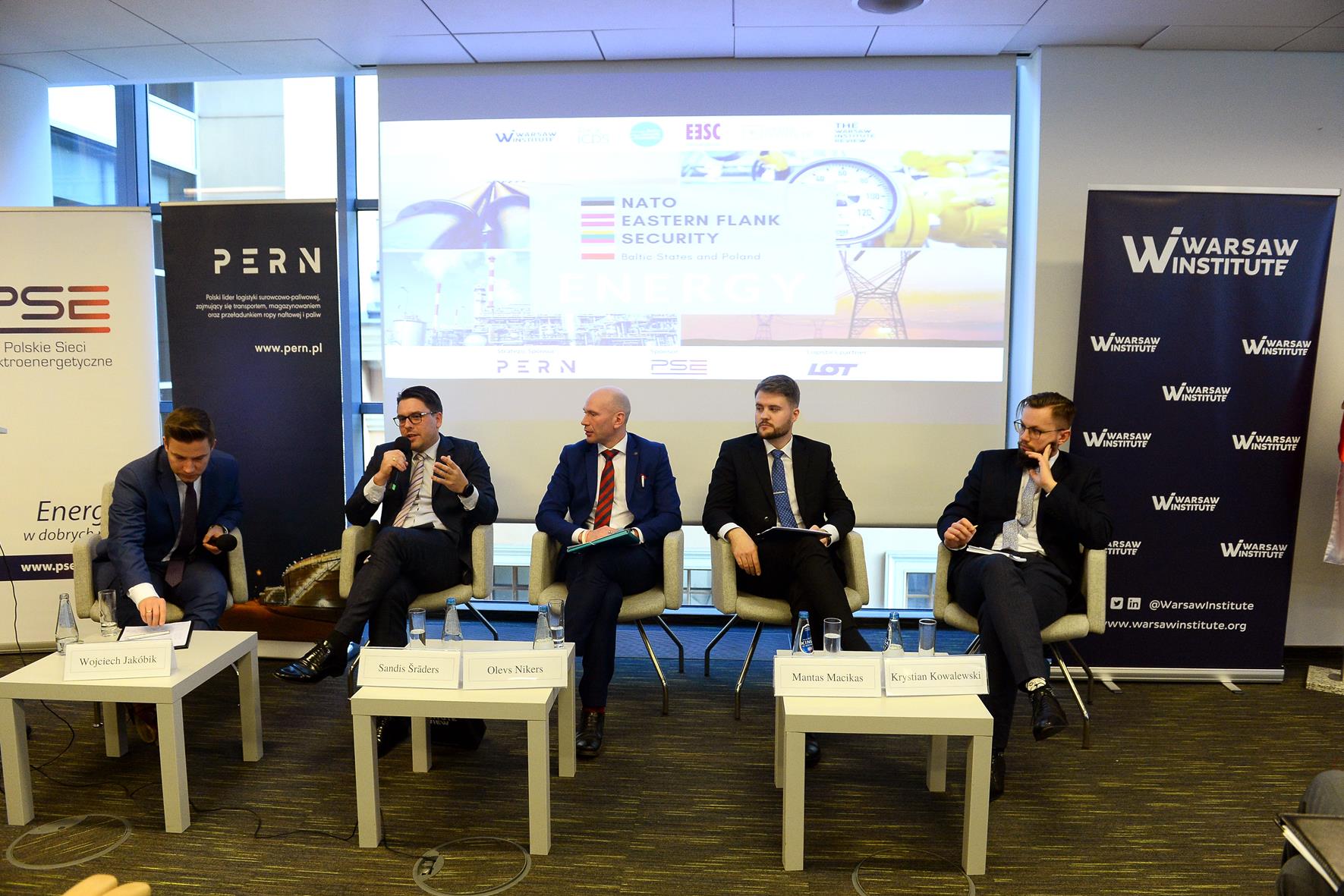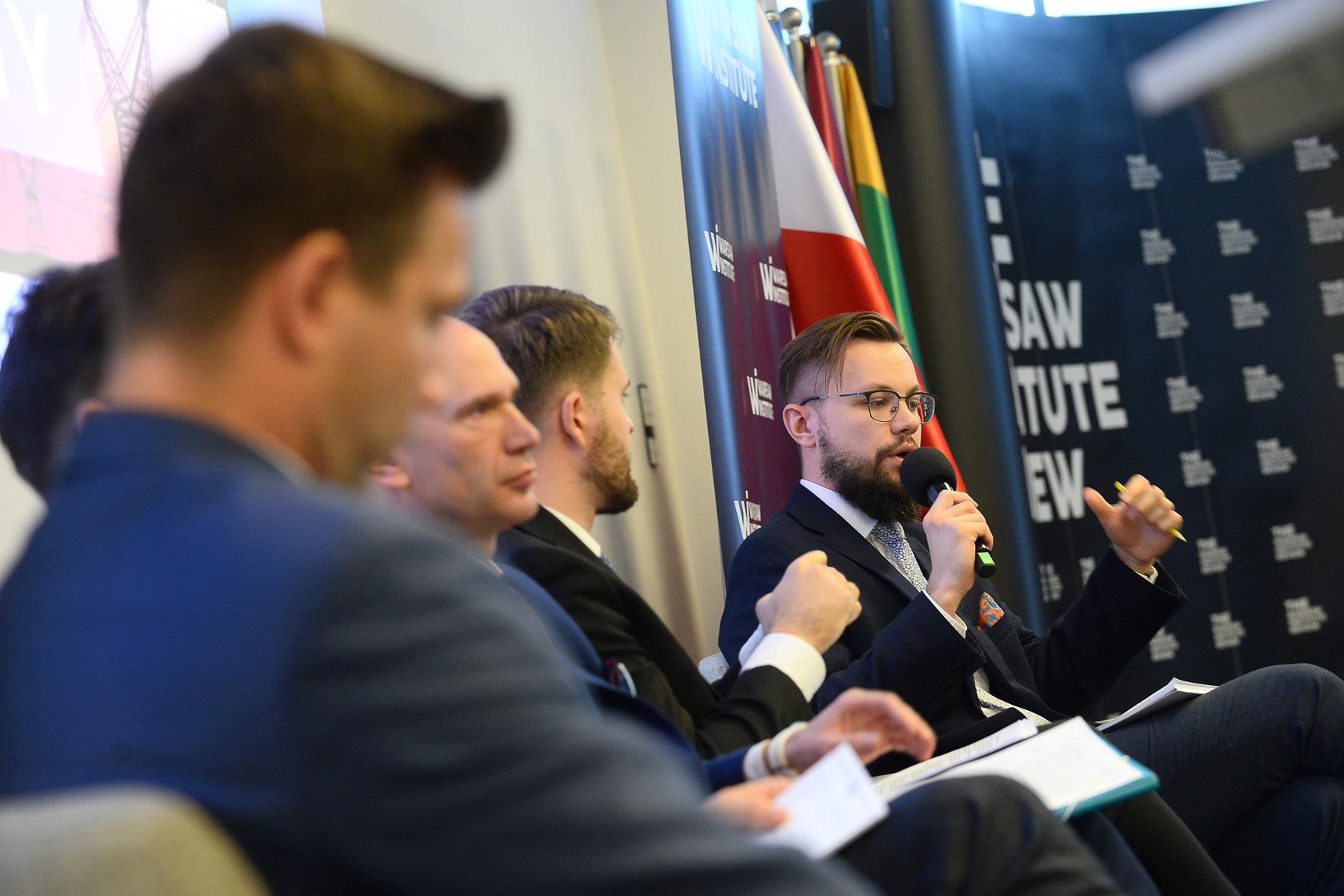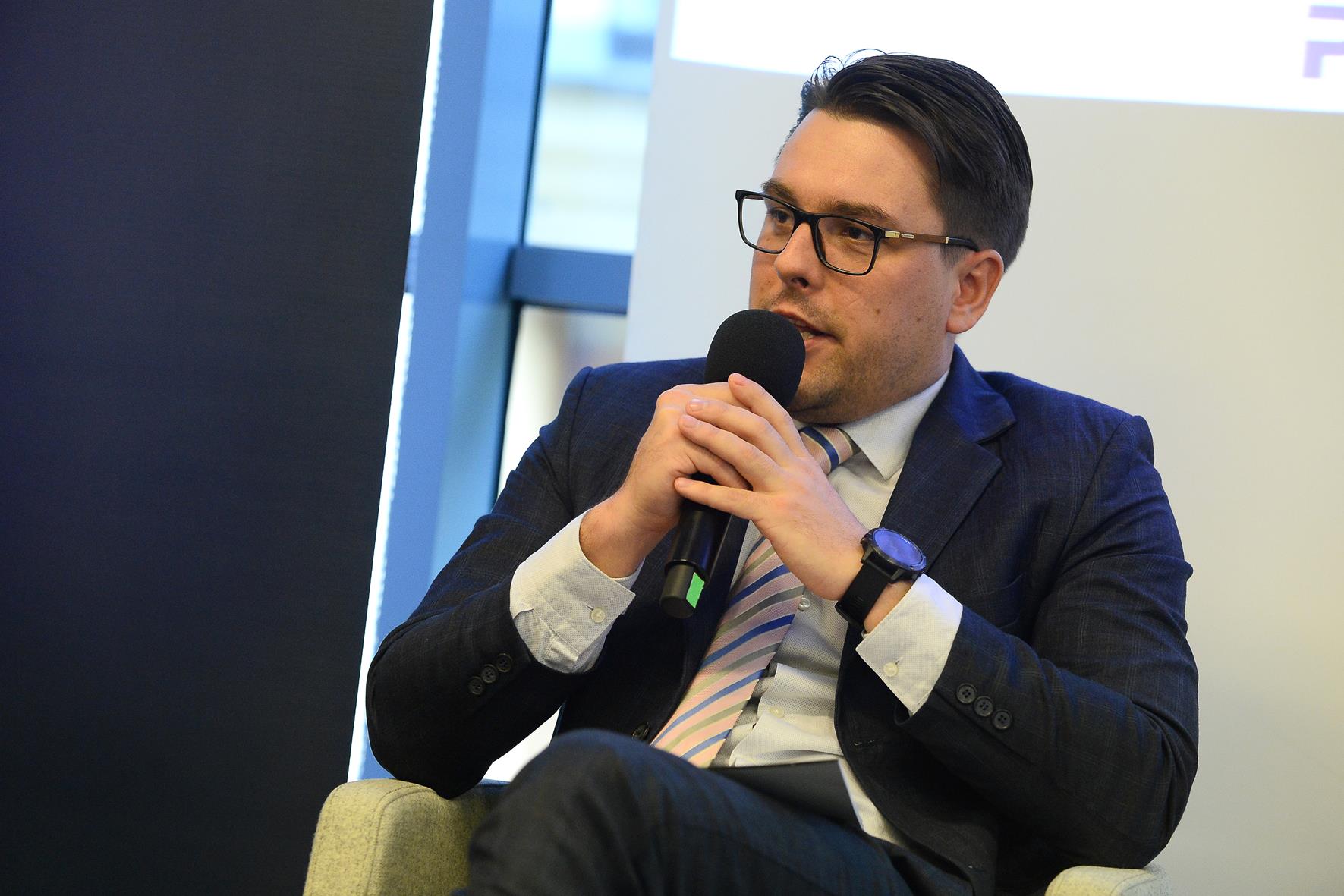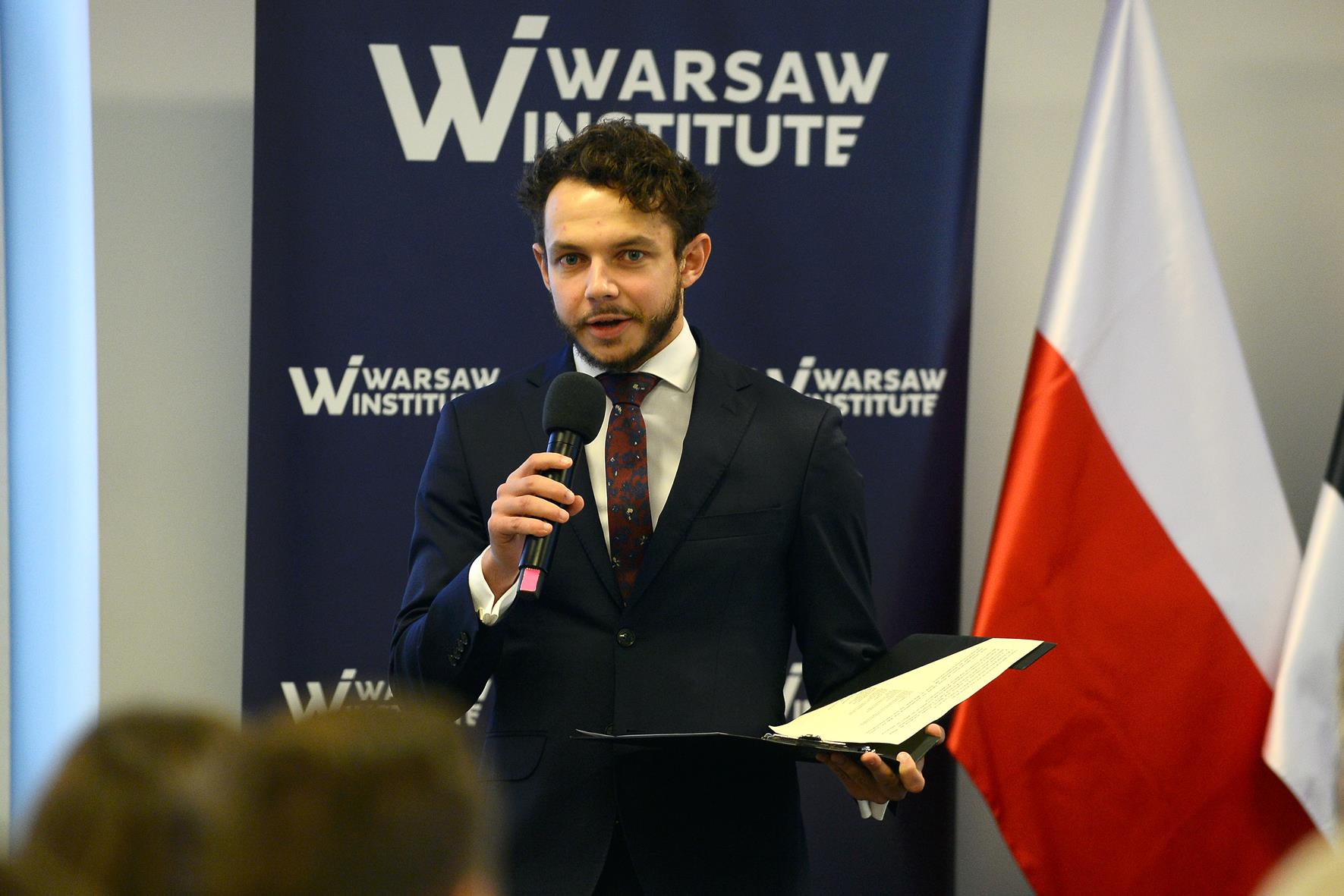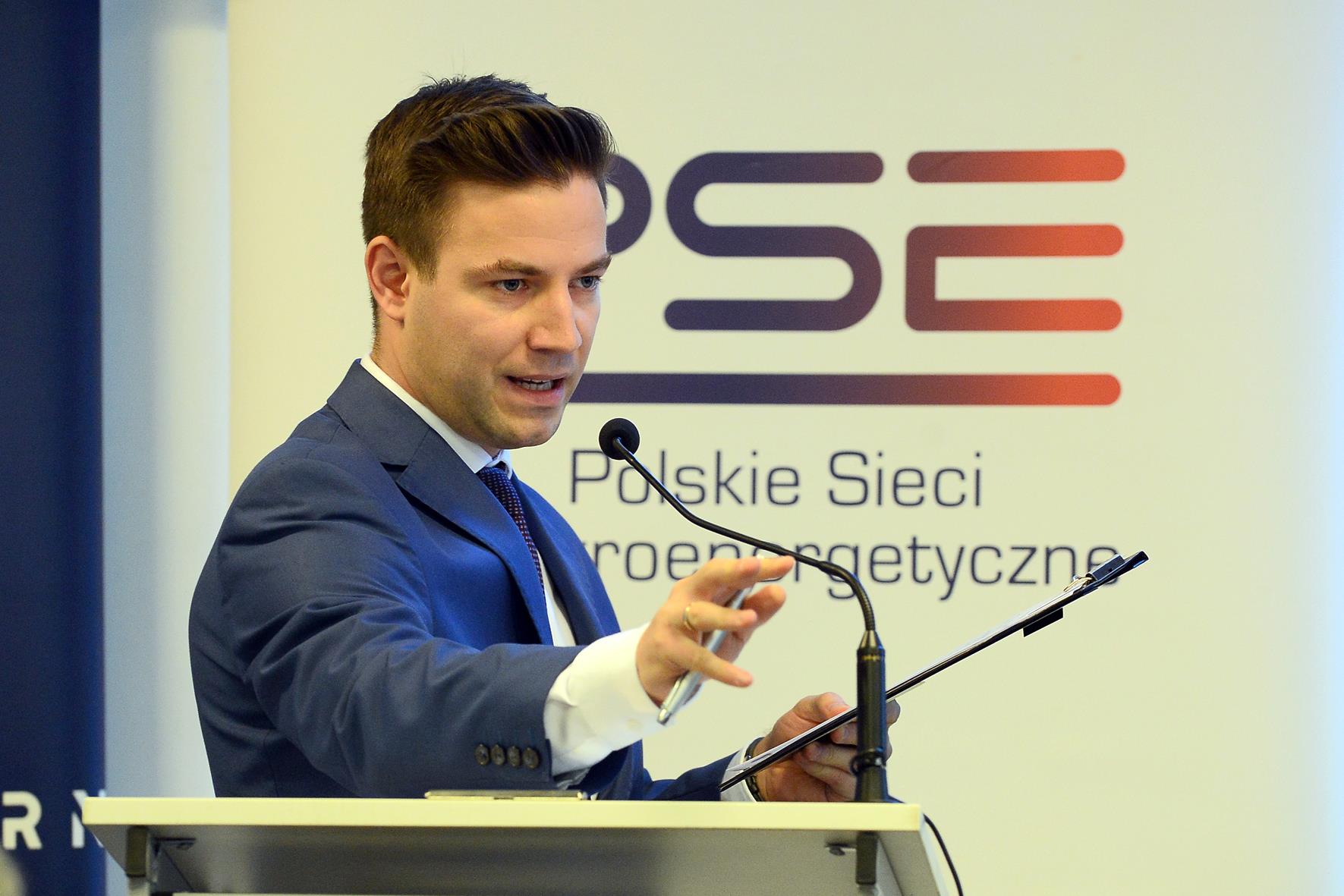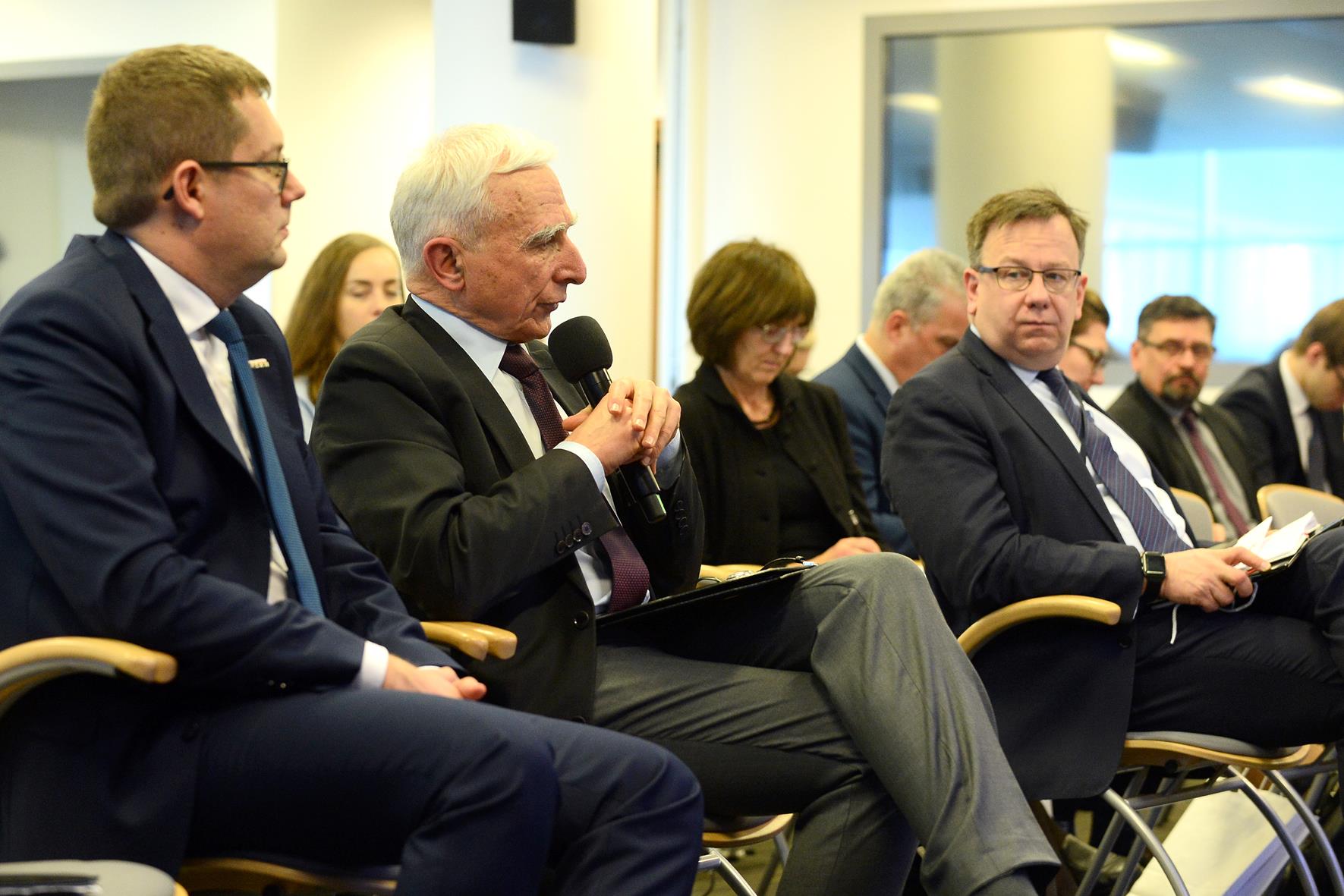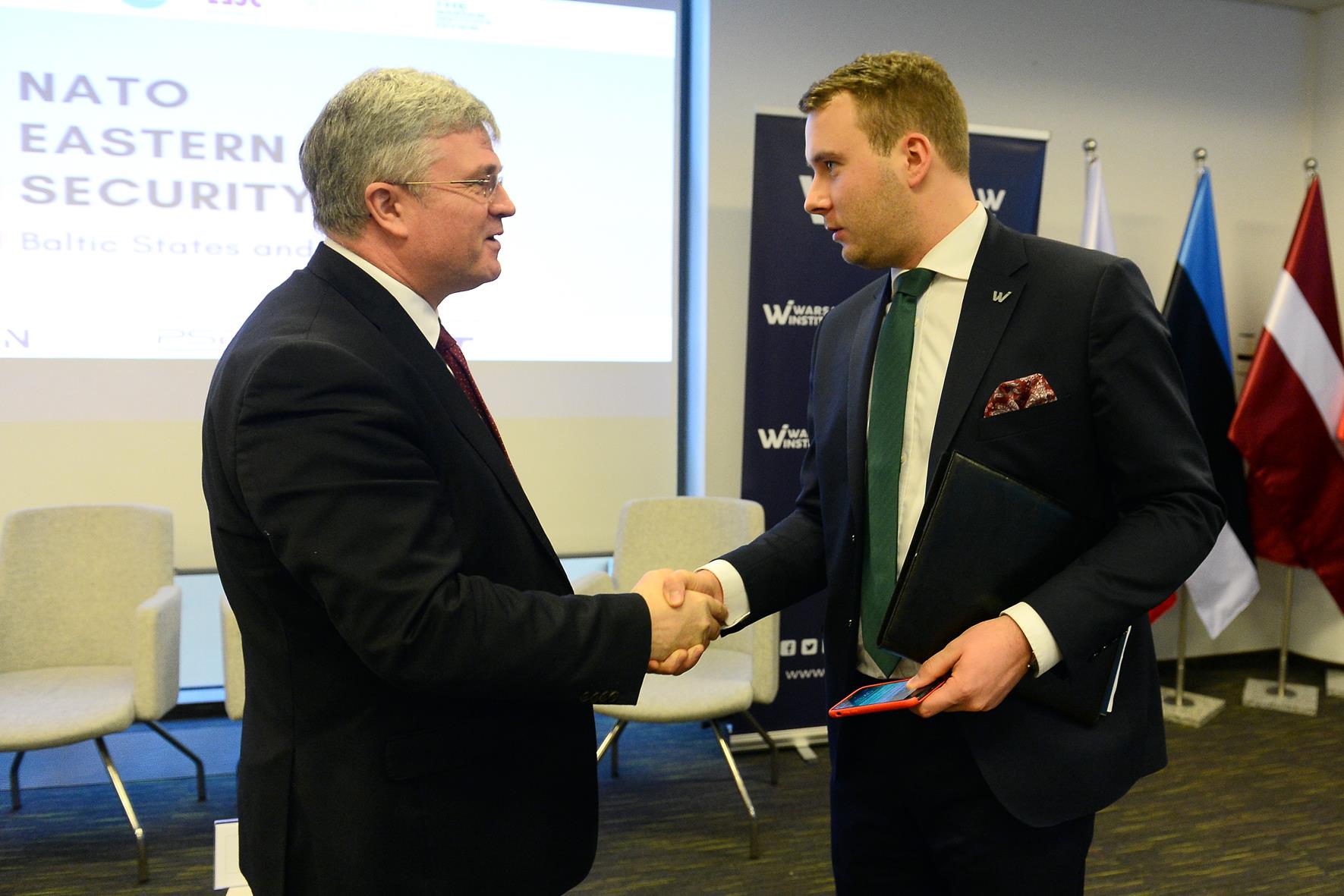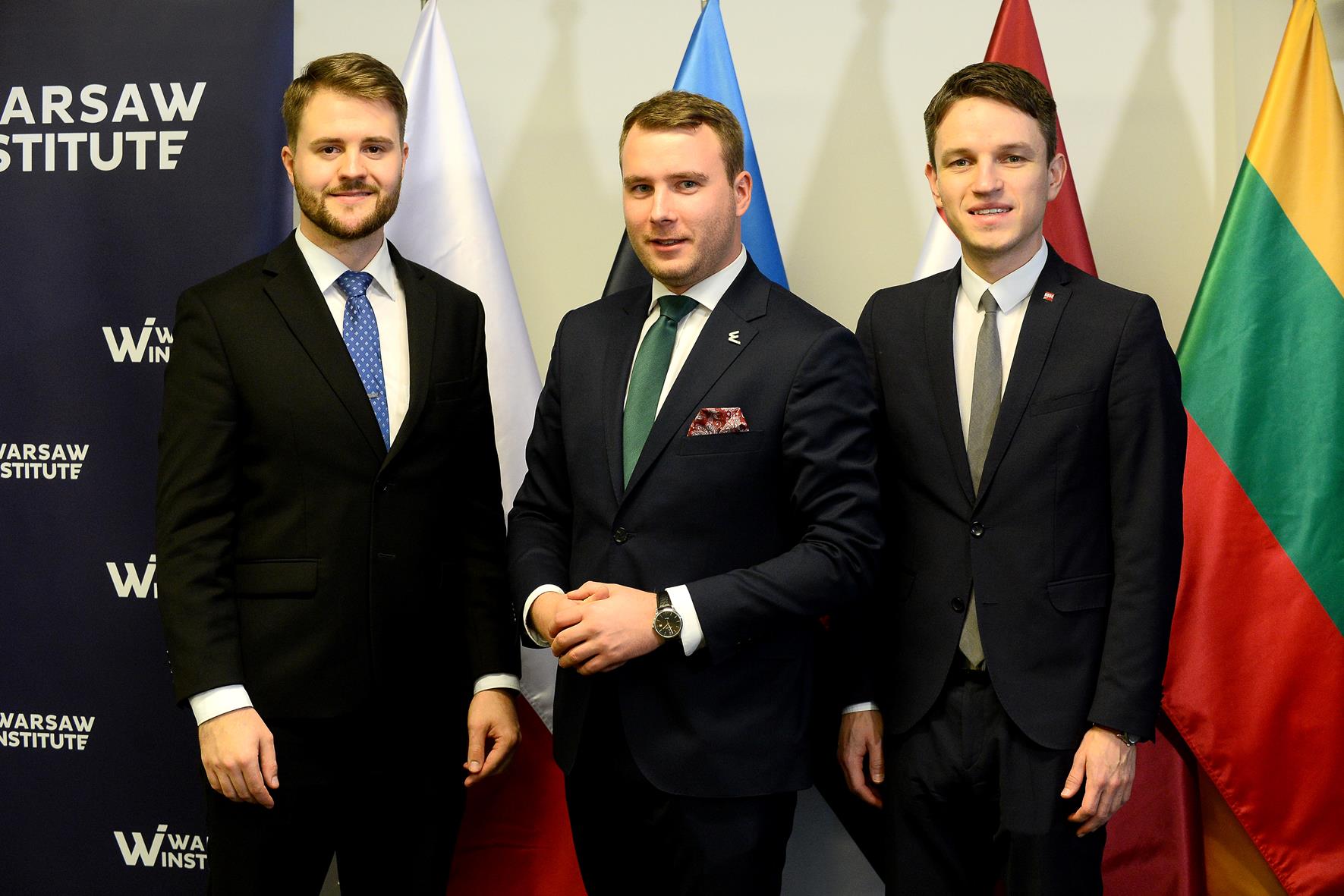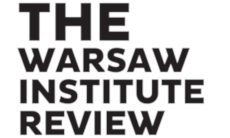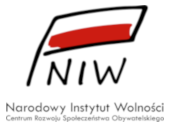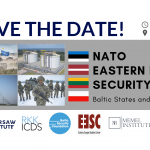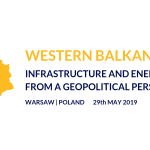EVENTS
Date: 29 November 2019
Conference Summary: NATO Eastern Flank Security. Baltic States and Poland
An international conference on Poland’s partnership with the Baltic States was held on November 28 in Warsaw, Poland as a forum to discuss vital issues pertaining to defense and energy sector. At the event, representatives for five think tanks from Poland, Lithuania, Latvia and Estonia signed a joint declaration on the establishment of the Baltic Fund. The conference was organized by the Warsaw Institute and the editorial staff of the Warsaw Institute Review quarterly.
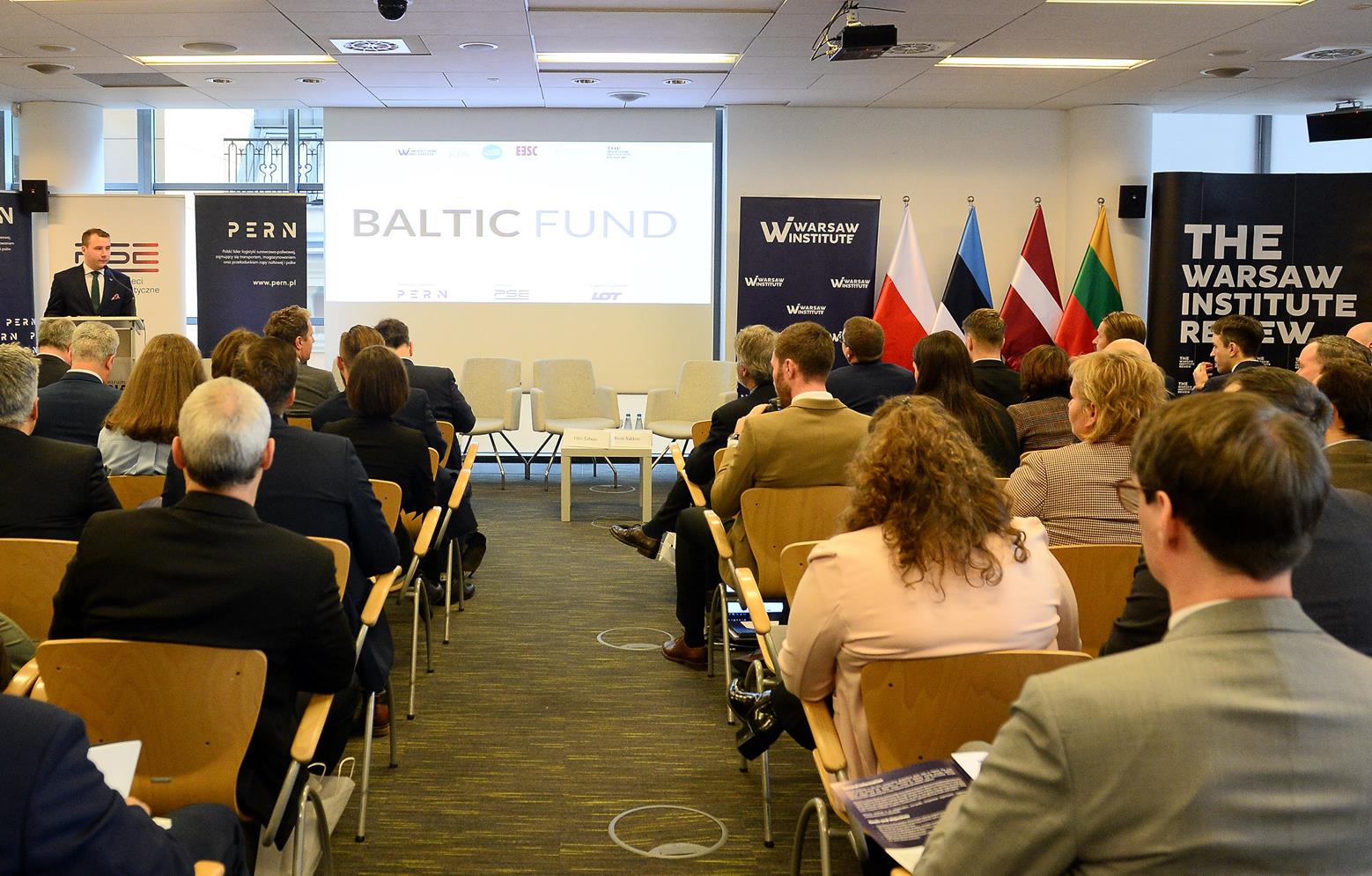
The summit aimed to launch an expert debate over the current state of relations between Poland, Estonia, Lithuania and Latvia as well as prospects for their deepening. The attendees had an opportunity to listen to a keynote speech by Minister Piotr Naimski, who delivered his remarks on energy cooperation between Poland and the Baltic States. Among the participants were diplomats, eminent experts, as well as representatives for think tanks, media, state administration and the business world. The event aroused the profound interest of members of nearly 40 foreign diplomatic missions to Poland.
In his welcoming remarks, Krzysztof Kamiński, President of the Warsaw Institute outlined the meeting agenda and top strategies for each of the two thematic sessions. As he highlighted later in his speech, defense and energy, or the two key themes, reflect the top issues for the Polish-Baltic partnership. Wedged in a region of leading geostrategic importance for NATO, Poland and the Baltic States need to confront both common threats and undertake joint obligations to defend their allies. What he saw as yet another catalyst for mutual endeavors is the energy industry and its grave impact on economic processes across the region.
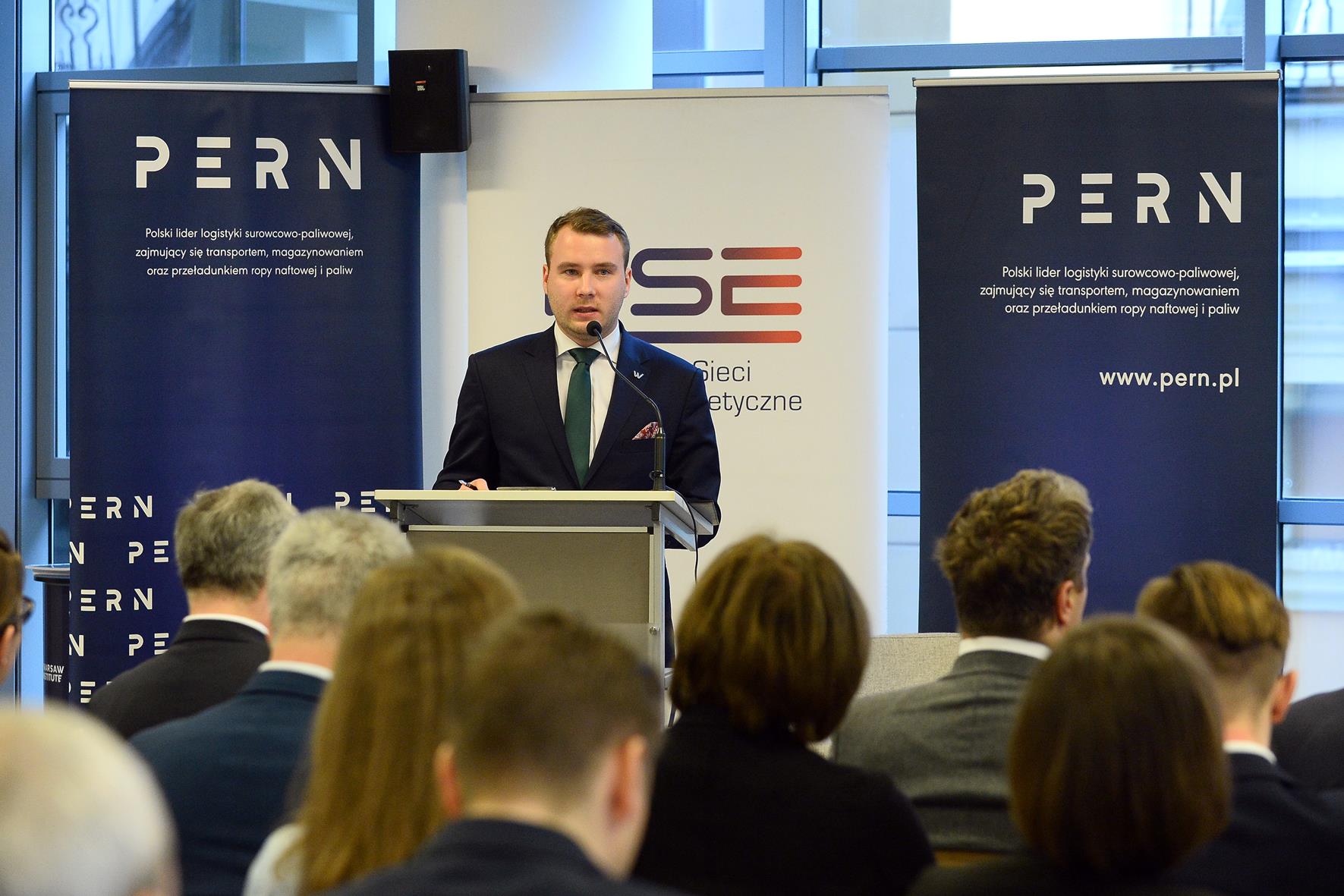
The signing ceremony of the Baltic Fund declaration
At the conference, five think tanks inked a joint declaration on the Baltic Fund, a document aiming to intensify efforts to promote a new institution. As part of their previously declared commitments, the signatories shall submit their plan to the governments of Estonia, Latvia, Lithuania and Poland. The Baltic Fund initiative pushes for deeper regional cooperation in areas such as security, economy, energy and civil security.
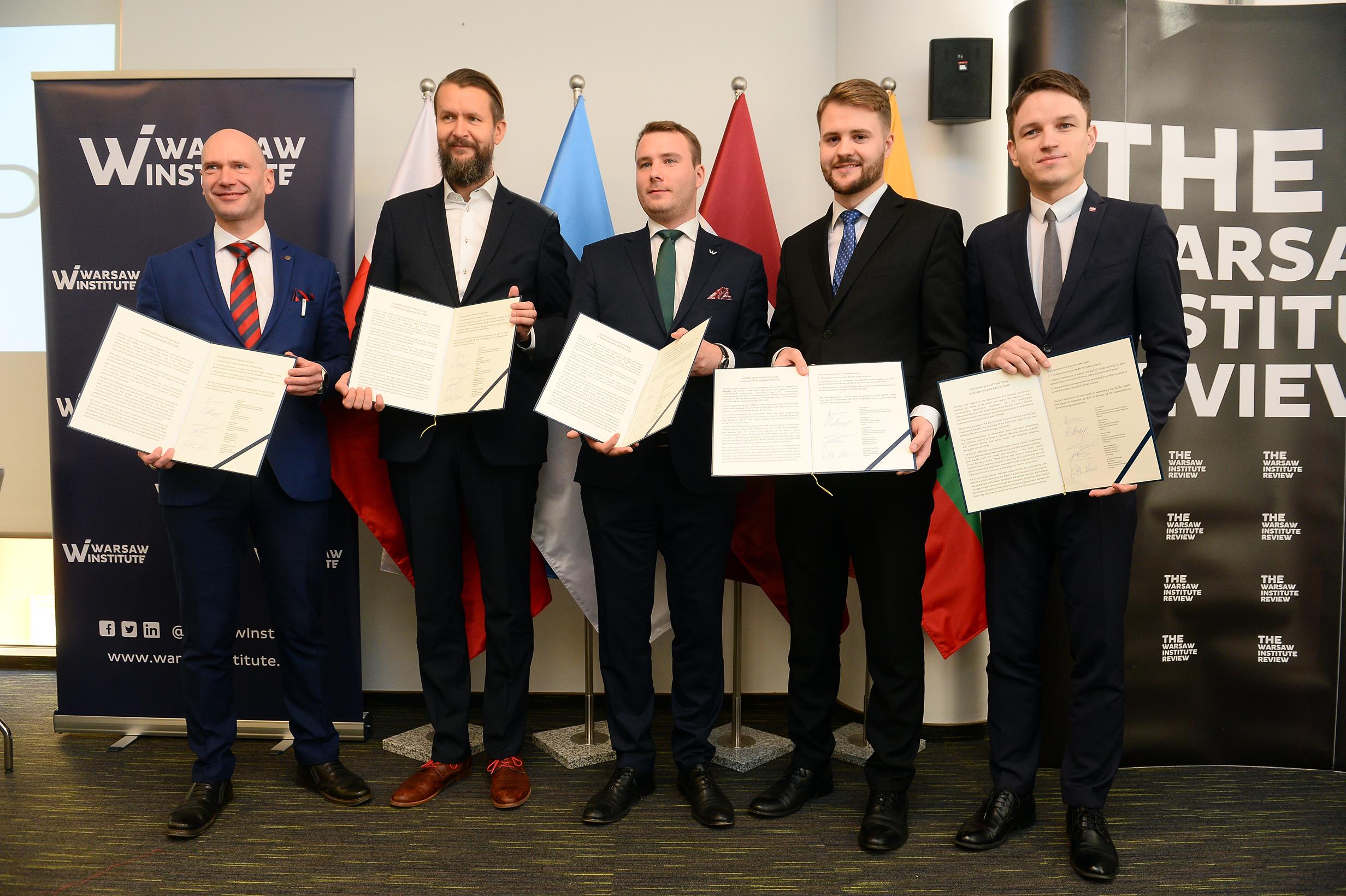
Signatories of the joint declaration on the Baltic Fund::
- Sven Sakkov – Director, International Center for Defense and Security, Estonia
- Olevs Nikers – President, Baltic Security Foundation, Latvia
- Linas Kojala – Director, Eastern Europe Studies Centre, Lithuania
- Mantas Macikas – President, Memel Institute, Lithuania
- Krzysztof Kamiński – Warsaw Institute, Poland
The Baltic Fund aims to intensify cooperation between Estonia, Lithuania, Latvia, and Poland as well as Denmark, Finland, Norway and Sweden, albeit in the long-term perspective. Thanks to the Baltic Fund, it will be possible to increase social capital, understood in terms of knowledge as well as structural and interpersonal relations, and to improve both image and significance of the Baltic region on the European arena, thus playing a fundamental role in reinforcing the sense of regional community and enhancing security in the Baltic Sea region. The following project may appear particularly significant in the context of the region’s current geopolitical situation as well as it will potentially exert influence on the further development of the political, military, and economic partnership.
Keynote speeches
The event’s keynote speech was delivered by Minister Piotr Naimski, Secretary of State in the Chancellery of the Prime Minister of Poland and Goverment Plenipotentiary for Strategic Energy Infrastructure. In his remarks, Minister Naimski referred to the key energy challenges Poland is facing in its cooperation with the Baltic States. He pointed to the synchronization of the three Baltic States’ electricity grids (of Lithuania, Latvia and Estonia) with the continental European network via an interconnector in Poland as one of the biggest projects being underway. Despite their membership in NATO and the EU, the Baltic grids were until now part of the post-Soviet electricity ring. Later in his comments, Minister Naimski highlighted the significance of two major initiatives: LitPol Link and Harmony Link, along with their impact on energy trade between Poland and the Baltic States. Speaking of electrical engineering, he called the audience’s attention to plans to expand or build nuclear power plants in Central and Eastern Europe while insisting on the importance of what state stands behind both funding and technology solutions. Furthermore, Minister Naimski provided a description of the gas pipeline infrastructure that pumps natural gas from Russia to Europe via Central and Eastern European countries. In his opinion, Poland is taking action to change the geopolitical system of gas pipelines in an effort to enable gas flows also from the north, both for itself and the entire region. Addressing the audience, Minister Naimski said Poland is bound to deliver deadlines for its key energy investments, including the Baltic Pipe project allowing transport of gas from Norway to the Danish and Polish market. Later in his speech, he mentioned the launch of the LNG terminal in Świnoujście, labeling it as a landmark event for Poland’s natural gas industry. In his comments, Minister Naimski referred to the Klaipeda LNG terminal’s floating storage and regasification unit (FSRU) that paved Lithuania’s way for getting out of Russia’s energy grip. What he also highlighted was that the region should take into account its oil transmission system for both civilian and military purposes. Minister Naimski showed in this presentation that any components in NATO’s oil pipeline infrastructure are solely found in Western Europe. Finally, he stressed out the key significance of energy transmission infrastructure in some crisis situations. While concluding his lecture, Minister Naimski said energy is vital for cooperation between Poland and the Baltic States as well as it exerts a massive impact on security at the regional level that also stems from continuous energy flows.
The second to take the floor was Mr. Mateusz Wodejko, Vice-Chairman of the Board, PERN S.A. In his speech, he insisted on the vital role of energy infrastructure for the country’s internal security, quoting an example of an oil pipeline operator. Also, he outlined the company’s principal investments that have a positive impact on Poland’s energy challenges. Later in his remarks, Mr. Wodejko drew the attendees’ attention to the Druzhba crude-contamination crisis earlier this year when his company was forced to halt tainted oil flows from Russia for safety reasons. An adequately prepared infrastructure allows avoiding any energy-related breakdowns or a negative impact on end-users, especially individual ones.
Session 1: Defense
The first session was moderated by Mr. Paweł Pawłowski (Chairman of the Foundation Council, Warsaw Institute). In his opening remarks, he mentioned the latest news reports on Turkey’s questioning NATO’s fundamental principles or words of French President Emmanuel Macron, which stimulated a vivid discussion over the current state of NATO.
Mr. Linas Kojala (Director, Eastern Europe Studies Center, Lithuania) argued that what marked a major turning point for the Baltic States was Russian aggression in Ukraine and Moscow’s annexation of Crimea in 2014. Never before had such importance been attached to NATO’s presence across the region, though that period marked ten years of Lithuania’s membership in the Alliance. Russia’s belligerent policy confined the bloc’s attention to the urge for strengthening its eastern wing, particularly in the Baltic region, as exemplified by NATO battlegroups in Lithuania, Latvia, Estonia and Poland. Furthermore, he cited the importance of the fifteenth anniversary of the Baltic Air Policing, an example of genuine support for allies. In spite of a set of some predetermined conditions of the Baltic States and their smaller defense budgets, as he noted, these do not cease to be a full-fledged member of the Alliance. Also, the Baltic States are able to comply with their obligations under the military bloc, by helping develop other defense capabilities, also in the area of cybersecurity and new technologies. In his speech, he spoke about transatlantic bonds and the current state of NATO, saying that Europe must have a stable position within the bloc and should refrain from building any other initiatives outside its structures.
Mr. Sven Sakkov (Director of the International Center for Defense and Security, Estonia) agreed with his predecessor, adding that Estonia in recent years has developed its domestic high tech industry and is now able to deliver highly specialized goods and services. As he pointed out, Estonia’s contribution to NATO’s common security manifests itself in efforts to ensure cybersecurity or counteract hybrid threats. He noted that attention should be paid to the differing potential among countries while constructing a security-based alliance at the regional level. In this context, Poland can boast of having a relatively well-developed defense industry while with its limited resources, Estonia has focused on bringing out a highly specialized cyber sector, an asset that NATO may soon see as of crucial significance. The authorities of Estonia are right to say that other international players may gain in importance as the Alliance has revealed its technological backwardness. Mr. Sven Sakkov quoted the report European Strategic Autonomy. Operationalising a Buzzword, which he co-authored, in which he stressed out the significance of Europe’s autonomy within NATO structures. It is worth remembering that any other initiatives do not intend to weaken the bloc, but to beef up Europe’s voice while boosting its responsibility for the fate of the alliance. Later in his speech, Mr. Sakkov argued that there is no room for a security vacuum in the present-day world because if NATO eventually gives way, others will immediately fill the void.
Mr. Otto Tabuns (Director of the Baltic Security Foundation, Latvia) said that what is essential is a shared or at least similar threat perception. He placed a high value on initiatives that allow politicians, commanders and NATO allied troops to experience what the bloc’s eastern flank is and to understand any threats it may face. Mr. Tabuns enumerated the top defense challenges for the region, especially those pertaining to the mobility of armed forces while urging to remove unnecessary red tape barriers that slow down the Alliance’s response capabilities. He said that as in Lithuania, so in Latvia there is raising public awareness of defense matters.
Mr. Ray Wójcik (Director of the CEPA Warsaw Office, United States) maintained that both the United States and most NATO member states had distinguished the constant need to strengthen the bloc’s eastern wing. He also drew attention to the critical importance of a transatlantic bond between the United States and Europe, branding it as a pillar of U.S. security architecture worldwide, also reflected by a military partnership. This peculiar bond finds its reflection in an economic alliance, with the United States being a top importer from Europe. Mr. Wójcik made a reference to the earlier discussion over the bloc’s current state, stating that the debate may incite greater cooperation and help understand what NATO actually stands for. Only if European elites fully understand current challenges, both at home and abroad, he noted, NATO will be able to strengthen its eastern flank successfully –– both in the Baltic Sea region and close to the Black Sea, the latter of which sees increased Russian activity after Moscow’s annexation of Crimea from Ukraine. As a former U.S. Army military, Mr. Wójcik outlined the strategic importance of the Suwalki gap, the only land link between the Baltic States and other NATO members. He analyzed military drills Rusia so far has staged against the Baltic States, adding that Russian war games are nothing but a hostile attitude toward the bloc, or even Moscow’s bracing for an armed conflict. In the event of a fight, Russia will push for the conquest of the Baltic States as soon as this is possible in a move that enforces NATO’s decision-making processes and the bloc’s ability to promptly shift its forces when needed. Mr. Wójcik said that once provoked, a plausible conflict would have no territorial boundaries, possibly covering the whole of Europe. This feasibility has given ground to NATO’s plans to hold a large-scale defense exercise on its eastern flank in April and May. In his final remarks, Mr. Wójcik stressed out the significance of new technologies, particularly that of the fifth-generation (5G) network, seen as a top security challenge the Alliance needs to face in the ensuing years.
Session 2: Energy
The second session on energy issues was moderated by Mr. Wojciech Jakóbik (Editor-in-chief for BiznesAlert.pl). In his opening remarks, he outlined the current energy challenges in cooperation between Poland and the Baltic States. Mr. Jakóbik stressed out the significance of energy security for the whole security system, both in countries and across the region.
Mr. Krystian Kowalewski (Director of the World Energy Council Warsaw Office, Poland) discussed the integration of Latvia, Lithuania and Estonia within a common EU power system. Not so long ago, these three were operated in parallel with the Integrated/Unified Power System (IPS/UPS) dating back to the Soviet times. Later in his remarks, Mr. Kowalewski cited further initiatives being underway (e.g. the Harmony Link project, or a submarine interconnection between Poland and Lithuania) in an attempt to synchronize these two’s electricity systems with the continental European Network (UCTE) by the target date of 2025. By creating connections and synchronizing the electricity grid, as he noted, a nuclear power plant in the Belarusian town of Astravyets may deem much less profitable than initially expected. Mr. Kowalewski took a stance on the region’s aspirations to diversify its natural gas supplies while underlining the uppermost importance of LNG terminals in Poland’s Świnoujście and Lithuania’s Klaipeda, both of which offer greater flexibility in crisis situations.
Mr. Olevs Nikers (President of the Baltic Security Foundation, Latvia) drew the audience’s attention to the construction of a nuclear power plant in the Belarusian town of Astravyets, a top energy challenge for our region. The nuclear power plant may exert a considerable impact on the power industry across the Baltic States, also by manipulating energy prices. As he further pointed out, reliable energy sources should be brought to the forefront, particularly in terms of technology used and their source of financing. Mr. Nikers said that the energy sector sees a need to enhance coordinated efforts throughout the region. This should occur both by denouncing uncomfortable projects and, first and foremost, by taking actions centered on the security of both countries and the region while making joint effort to fulfill climate-oriented goals.
Mr. Mantas Macikas (President of the Memel Institute, Lithuania) also referred to Belarus’s plans to build a nuclear power plant, saying that the facility is being constructed roughly 50 kilometers far from Vilnius. The nuclear power plant on Belarusian soil has stirred up a public debate in Lithuania since 2009 and yet, Mr. Macikas argued that the investment should hit high on the European agenda due to its non-compliance with security policies and norms, emphasizing the use of Russian-sourced capital and technology. Later in his comments, Mr. Macikas addressed natural gas issues, underlining the tremendous importance of Klaipeda’s floating liquefied natural gas storage unit for Lithuania’s security. The LNG facility paved the country’s way for reducing its reliance on Russian gas flows and opening for new suppliers, including Norway, thus far unavailable for the Lithuanian energy market. This is of topmost significance for the gas market, with energy prices being set on the basis of relevant indicators, far from any political decisions. As a consequence, end-users could pay less for energy.
Sandis Šrāders (Faculty Member of the Baltic Defence College, Latvia) referred to the Nord Stream 2 energy pipeline, which is currently in the advanced construction stage, and briefed on its further implications for the entire Baltic region. As he noted, the U.S. establishment is still able to take action against the Russian-led initiative. But along with the advanced status of the project, it could by no means be blocked, but potentially delayed. What may strike the greatest blow to Nord Stream 2 are U.S. punitive measures against Gazprom’s subcontractors, also by banning them from having free access to financial settlements. Once in force, penalties would force Russia’s gas monopolist Gazprom to bankroll the investment, with Russian taxpayers being forced to bear the financial brunt. Mr. Šrāders said that the countries of the Baltic region should strive for enhancing cooperation in the field of gas imports, albeit in line with market conditions, with energy prices being just and independent of political factors.
Present at the panel discussion, Minister Piotr Naimski also gave his remarks on the Belarusian nuclear power plant, declaring that Poland is on its way to becoming self-reliant, by generating electricity for domestic purposes and no longer purchasing energy from elsewhere.
The organizers wish to thank all partners and sponsors for their cooperation and help in organizing the event.
Strategic Sponsor:
The national and regional leader in crude oil logistics. Managing company of a network of crude oil and petroleum products pipelines and terminals.
Sponsor:
Polskie Sieci Elektroenergetyczne S.A.
Polish state transmission system operator for electricity
which accounts for the power system balancing.
Preparation of the conference (concept, implementation, realization) was possible thanks to co-financing from the Civil Society Organisations Development Programme 2019.
Selected activities of our institution are supported in cooperation with The National Freedom Institute – Centre for Civil Society Development.
All texts published by the Warsaw Institute Foundation may be disseminated on the condition that their origin is credited. Images may not be used without permission.

